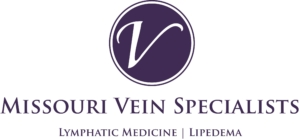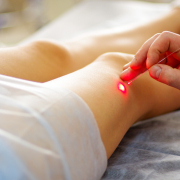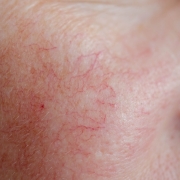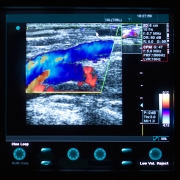Spider Veins: Causes, Treatment and Prevention
Spider veins are small, damaged veins that occur most commonly on the surface of the legs or face, and develop more often in women. Typically, spider veins are considered superficial, and although they may occasionally cause discomfort, they are usually painless.
Spider veins often appear as small thin red or purple lines that are formed by the dilation of a small group of blood vessels located close to the surface of the skin. They can appear anywhere on the body, but are usually found on the legs and face. Spider veins are often considered a cosmetic issue and usually pose no health hazard. Sometimes, however, they can produce a dull aching in the legs after prolonged standing, which may indicate a more serious venous disease.
What Causes Spider Veins?
Spider veins can develop at any age, and although the exact cause of them is unclear, they can be hereditary and some conditions and lifestyle factors can also increase the risk of developing them. This can include hormonal conditions, birth control, prolonged sun exposure, weather changes, pregnancy, and alcohol consumption. People who stand up for long periods of time, such as hairdressers, nurses, and teachers, are also thought to be more susceptible to them.
Spider veins are thought to develop as a result of structural abnormalities or damage to the underlying veins, which are under high pressure and feed blood into the spider veins. Veins are responsible for carrying blood from the body’s tissues back to the heart. To prevent blood from flowing backwards, each vein is equipped with a series of one-way valves that keep blood flowing in the right direction and close once the blood has passed through it. If the vein becomes damaged, it can cause structural abnormalities and cause the walls or valves to weaken and dilate. This can prevent blood flowing in the correct direction and cause it to pool in segments of the vein, putting increased pressure on veins and smaller blood vessels.
Treatment for Spider Veins
Spider veins aren’t usually painful or harmful, but they can be unsightly, causing some people to wish to treat them for cosmetic reasons. With increasing research and technological advancements, there are a variety of minimally invasive treatments that are quick and often require little to no recovery time. The most popular therapies available to treat spider veins are sclerotherapy and laser treatments.
Sclerotherapy can be performed using a variety of solutions and technologies. It is used to eliminate the veins by injecting a liquid or foam solution directly into the vein, which causes the lining of the vein to shrink and seal shut and eventually dissolve, eliminating the vein completely. Blood is then naturally rerouted to other healthier veins. Sclerotherapy doesn’t require anesthetic and can be performed in the physician’s office. More than one treatment may be required to attain maximum results.
Laser treatments are used to treat both superficial spider veins and deeper blue leg veins, and they can be used on men and women of all skin tones. The laser delivers energy at 1064nm wavelength, which is absorbed by the blood within the vein resulting in coagulation of the blood vessel. Gradually, the treated blood vessel disappears as it closes, and the blood reroutes to other healthier veins. The laser does not cause damage or injury to nearby healthy tissue and surrounding skin.
Preventing Spider Veins
It is not always possible to prevent spider veins, but there are certain factors that can help prevent new spider veins from appearing or stop existing ones from getting worse, which include:
- Using sunscreen
- Maintaining a healthy weight
- Not sitting or standing for extended periods
- Getting regular exercise
- Wearing compression stockings
- Avoiding restrictive clothing
- Avoiding the overuse of hot showers, hot tubs, and saunas
- Limiting alcohol consumption
- Elevating the legs regularly
Vein Doctor in Kansas City, Missouri
If you have bothersome veins that are causing you embarrassment or discomfort, talk to the Missouri Vein Specialists. Vein specialist Dr. Scott Darling has the expertise and knowledge to treat the full spectrum of vein disease. For the best vein treatments in Kansas City, call us today at 816-792-3400 to schedule your vein screening.












